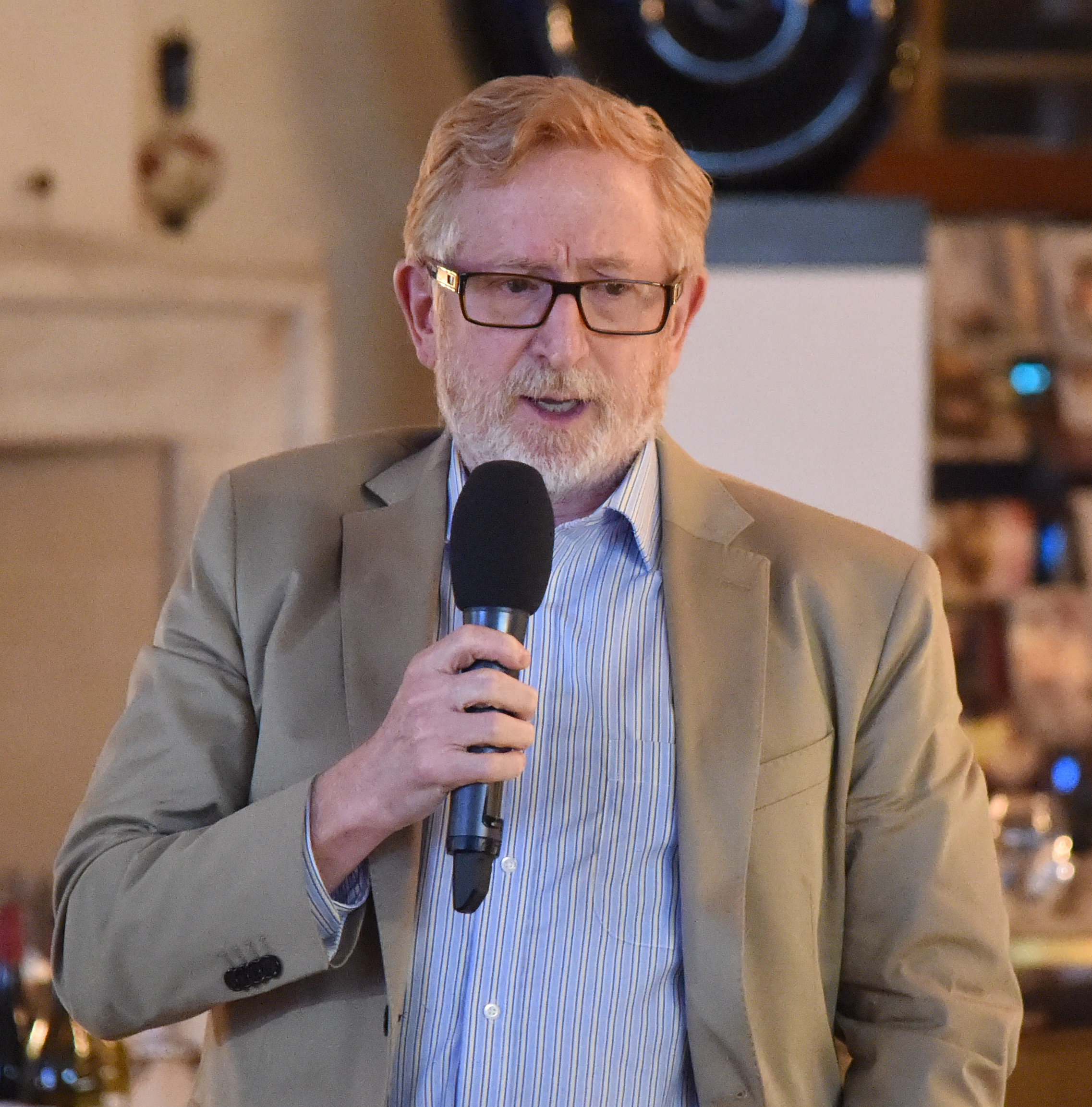

Providing a safe space, an intimate and empathic connection, and continuity is at the core of what we do with our patients. How to do this during the COVID-19 pandemic is no small challenge. The spaces in which we work, the way we think about safety, how we think about and immerse ourselves in patients’ inner worlds, and how we provide continuity have all been radically altered. This webinar will be a chance to think together about these issues by exploring the clinical gains and losses subsequent to our rapid, near-total conversion to tele(mental)health and the ongoing challenge of enduring this change in the face of uncertainty and loss.
Before the pandemic, psychoanalytic clinicians were grappling with how to make informed decisions about using technology for patient care. We had the leisure to examine emerging research in neuroscience, virtual reality, human-computer interaction, and communications theory and then let that inform our thinking. However, forced by COVID-19 abruptly to adopt technologically mediated treatment as the safest way to practice, clinicians have immediately moved treatment, supervision, and classes online. With no transition period, no choice, and no clear path forward, the move to distance treatment and training has left many feeling uncentered, unprepared, and vulnerable.
In this seminar, Gillian Isaacs Russell, author of Screen Relations: The Limits of Computer-Mediated Psychoanalysis and Psychotherapy (Karnac, 2015) and Todd Essig, currently co-chair of APsaA’s COVID-19 Advisory Team, will share their thoughts about how to make informed decisions while leading a discussion of the impact on clinicians of pandemic-based screen-mediated treatment. They will explore differences between screen relations and actual presence; how those differences influence clinical processes and outcomes; and what concepts, skills, and strategies can be developed to help make remote treatment work. Finally, they will engage a discussion of what might happen, once it is safe to do so, when we re-emerge into a very different post-pandemic world.
Request for Clinical Vignettes
The presenters are requesting that participants submit clinical vignettes (250 to 500 words) about challenging or curious experiences encountered while providing teletherapy during the pandemic. Several of these will then be presented and discussed during the webinar.
CE Learning Objectives:
1. Attendees will be able to describe 4 features of the clinical context unique to the Covid-19 pandemic.
2. Attendees will be able to explain the role of temporal synchrony in the experience of telepresence.
3. Attendees will be able to list 3 general dimensions of difference between physical co-presence and screen relations.
4. Attendees will be able to compare how attention is mobilized in in-person versus onscreen psychotherapy sessions.
5. Attendees will be able to explain a paradox central to providing teletherapy during the Covid-19 pandemic
Todd Essig, Ph.D., is Training and Supervising Psychoanalyst at the William Alanson White Institute. Widely known as a pioneer in the innovative uses of mental health technologies, he publishes and lectures widely. He has served on editorial boards for Contemporary Psychoanalysis and JAPA and recently co-edited along with Gillian Isaacs Russell a special issue of Psychoanalytic Perspectives on psychoanalysis and technology. In the aftermath of 9/11 he was Board Chair for the NY Disaster Counseling Coalition (NYDCC) providing free mental health care to first responders and their families. He currently serves as Co-Chair of the American Psychoanalytic Association’s Covid-19 Advisory Team. He writes “Managing Mental Wealth” for Forbes where he covers the intersection of technology, psychology, and culture. His practice is in New York City where he treats individuals and couples, almost all of whom (used to) come to his office.
Gillian Isaacs Russell, Ph.D. is a UK-trained psychoanalyst. She is a member of the American Psychoanalytic Association, the International Psychoanalytical Association and the British Psychoanalytic Council. Her book, Screen Relations: The Limits of Computer-Mediated Psychoanalysis and Psychotherapy, was published by Karnac Books in 2015. She serves on the editorial board of the British Journal of Psychotherapy and recently co-edited with Todd Essig a special issue of Psychoanalytic Perspectives on psychoanalysis and technology. Dr. Russell writes, speaks and teaches internationally on technology and its impact on intimate human relationships, particularly in psychoanalytic treatment. She currently serves on the Covid-19 Advisory Team for the American Psychoanalytic Association. She practices in Boulder, Colorado.
This event will be recorded so that registrants can view the presentation and receive CE credits at any time during the month following the presentation. We therefore ask that attendees at the live event take extra precaution to protect the confidentiality of clients.
Registration will close at midnight on Friday September 25th, 2020.
CEs have been applied for and are pending.
CONTINUING EDUCATION POLICIES
Cancellation Policy
Cancellation of your registration with full refund can be done up to the day before the event. Simply send an email requesting to cancel to office@privatepracticecolloquium.com.
Accommodations for the Differently Abled
Commonwealth Educational Seminars' training facilities are handicap accessible. Individuals needing special accommodations, please contact the Private Practice Colloquium office@privatepracticecolloquium.com
Grievance Policy
The Private Practice Colloquium, Inc. (PPC) and Commonwealth Educational Seminars (CES) seek to ensure equitable treatment of every person and to make every attempt to resolve grievances in a fair manner. Please submit a written grievance to PPC, 564 Loring Avenue, Salem, MA 01970 or to CES, 1020 Osterville West Barnstable Rd, Marstons Mills, MA 02648. Grievances will initially be directed to the training instructor. Grievances would receive, to the best of our ability, corrective action in order to prevent further problems. If you have questions or concerns, contact PPC at (978) 741-8066 or Commonwealth Educational Seminars at (800) 376-3345.
Continuing education credit is awarded by Commonwealth Educational Seminars for the following disciplines:
Social Workers:
Commonwealth Educational Seminars (CES) is entitled to award continuing education credit for Social Workers. Please visit CES CE CREDIT to see all states that are covered for Social Workers. CES maintains responsibility for this program and its content. Social Workers completing this program will receive 3.0 clinical hours of clinical continuing education credit.
Licensed Mental Health Counselors/Licensed Clinical Professional Counselors:
Commonwealth Educational Seminars (CES) is entitled to award continuing education credit for Licensed Professional Counselors/Licensed Mental Health Counselors. Please visit CES CE CREDIT to see all states that are covered for LPCs/LMHCs. CES maintains responsibility for this program and its content. LPCs/LMHCs completing this program will receive 3.0 hours of continuing education credit.
Psychologists:
Commonwealth Educational Seminars is approved by the American Psychological Association to sponsor continuing education for Psychologists. Commonwealth Educational Seminars maintains responsibility for this program and its content. Psychologists receive 3.0 hours of continuing education credit upon completing this program.
Nurses:
As an American Psychological Association approved provider, CES programs are accepted by the American Nurses Credentialing Center (ANCC). Every state Board of Nursing accepts ANCC approved programs except California and Iowa, however CES is also an approved Continuing Education provider by the California Board of Registered Nursing, (Provider Number CEP15567) which is also accepted by the Iowa Board of Nursing. Nurses completing this program receive 3.0 CE hours of credit. Please provide us with any promotional materials, online and/or hard copy brochures/flyers which have the above required statements. Please provide us with your evaluations and/or an evaluation summary.
Licensed Marriage & Family Therapists:
Commonwealth Educational Seminars (CES) is entitled to award continuing education credit for Licensed Marriage & Family Therapists. Please visit CES CE CREDIT to see all states that are covered for LMFTs. CES maintains responsibility for this program and its content. LMFTs completing this program will receive 3.0 hours of continuing education credit.